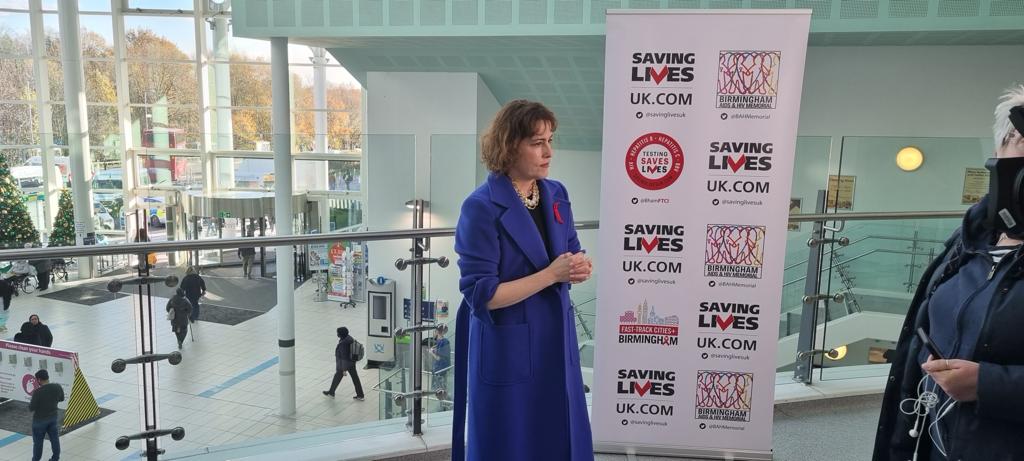
Saving Lives strongly welcomes the government’s decision to fund opt-out A&E HIV and Hepatitis testing in high-prevalence areas across England. This intervention will significantly improve detection rates of HIV, and therefore the health outcomes of those living with the virus. Many people infected with HIV are not aware of their status because they are yet to test; the later they are diagnosed, the sicker they will potentially be. Testing individuals for HIV who would not otherwise have provided samples is crucial to ending the HIV epidemic.
Opt-out A&E testing is the best place to start to diagnose those who remain undiagnosed in the UK. In the last decade, the numbers of people who are infected with HIV but are not aware of their status has been falling considerably. But we are now nearing a stage where action beyond the work we have been doing for these ten years must be taken to find those who remain invisible to testing. A&E is the best possible place to start, since its patient population is so broad.
Until now, to test someone in A&E for HIV has required their consent. This has led to many refusing to be tested for the virus, and has proven a barrier to testing as many people as possible for HIV. There is a precedent for this work: opt-out HIV testing among pregnant people has been the norm for some years now, with only a tiny minority exercising their right to opt out. Testing for HIV by default simply treats the test like any other. Patients recognise this signal, and respond accordingly.
The government’s decision today will have a material impact in places like our home city of Birmingham. Saving Lives has been at the forefront of campaigning in the region for opt-out testing, and this collaborative effort across healthcare, local government and the third sector to demonstrate to Westminster of the importance of his action has been a great example of what we can do if we come together. The Secretary of State for Health and Social Care visited Birmingham just today and saw the network we’ve built here in the city. This decision will be greeted enthusiastically by us all.
 Our Medical Director, Dr Steve Taylor, has long been convinced of the importance of opt-out testing. “I am absolutely delighted with this news. It’s an absolute game-changer for Birmingham, the West Midlands and other cities around the UK,” he says.
Our Medical Director, Dr Steve Taylor, has long been convinced of the importance of opt-out testing. “I am absolutely delighted with this news. It’s an absolute game-changer for Birmingham, the West Midlands and other cities around the UK,” he says.
“If we can successfully introduce routine opt out HIV and Hepatitis testing for everyone already having bloods taken in the Emergency Departments of our Hospitals, I know we will diagnose literally hundreds of people who are unknowingly carrying these viruses.
“What does this mean? It means that, instead of people presenting to our services with advanced, life threatening infections such as liver cirrhosis or liver cancer, they can be diagnosed early and receive life-saving and life-changing treatments, have a normal life expectancy, and become non-infectious to their sexual partners.
“In Birmingham in the last year, we saw over 100 newly diagnosed people living with HIV attend our services. Most of these have been diagnosed through sexual health services or diagnosed very late when they are already very sick in hospital. With the introduction of opt-out A&E testing, I am confident that we will see an increase the numbers of people we diagnose in Birmingham, but hopefully at an earlier stage so we can reduce the numbers presenting very late with life threatening illness.
“We need to normalise testing if we are to achieve the Birmingham Fast Track Cities Initiative targets of eliminating new cases of HIV and Hepatitis in Birmingham by 2030. By routinely testing everybody who is already having a blood test in A and E for HIV and Hepatitis we can also begin to remove the stigma around testing for HIV that still exists.
“It’s a win win situation people will be diagnosed earlier and can receive lifesaving treatment, and we can stop the onwards transmission of HIV.”
It’s a great day for HIV care in England – and right ahead of World AIDS Day this Friday. It’s a good day for Birmingham, too. Saving Lives like especially to acknowledge the support of Terrence Higgins Trust and stakeholders across the city and region.
